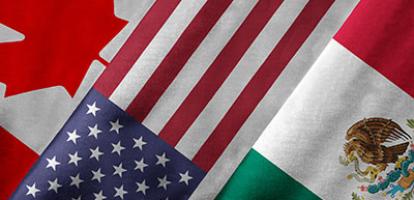Edited Remarks to the Senate Standing Committee on Foreign Affairs and International Trade on Bill C-282 An Act to Amend the Department of Foreign Affairs, Trade and Development Act (supply management). The bill would preclude the Canadian government from making market-access or tariff concessions for supply-managed products in future trade deals, in exchange for benefits Canada may obtain from its trading partners.
Thank you for the invitation to appear before this committee.
My remarks today will not focus on the virtues or drawbacks of supply management, but about the costs to the Canadian economy if this bill becomes law.
Dairy and other supply-managed sectors are of course important, comprising somewhat less than 1 percent of Canadian GDP and employment, with outsized impact on some rural communities. However, my concern with this bill is about its impact on “the other 99 percent.” Other Canadian sectors that depend on open international trade – including the bulk of Canada’s agriculture – generate jobs, government revenues, and of course exports that are overwhelmingly more important.
What this bill says is that Canada is willing to unnecessarily hamper the ability of these other sectors to expand in global markets, which is where Canadians can usually generate the highest income opportunities for themselves and for this country.
And that’s because the bill completely ties the hands of our trade negotiators, in a global context where protectionism is on the rise – a trend which is not expected to improve under recently elected President Trump, whatever the final makeup of the United States Congress is come January. Canada will have to be nimble and creative in responding to this challenge. And that may involve negotiating new trade arrangements or renegotiating and hopefully improving on existing ones.
Making small concessions in supply-managed sectors was instrumental in securing beneficial trade agreements in the past, agreements which are standing Canada in good stead in a more hostile global environment. Once we say that we will be entirely closed to improvements, however small, that our trade partners may seek in their ability to supply Canadian consumers, restaurateurs or food processors, those trade partners, if they are willing to negotiate at all, will likely deny significant opportunities to other Canadian sectors in return.
The spillovers are real. For example, while we were seeking to strengthen our trade relationship with the United Kingdom, following its exit from the European Union, our unwillingness to “talk cheese” led the UK to walk away from those negotiations. Another example will be upon us shortly in the CUSMA review which is coming up in 2026. Supply- managed products are very likely to come on the table during this review. I would say that it’s a lot easier for our negotiators to hold the line, if that is the government’s wish, by saying “I can’t, it’s politically difficult,” than by saying “The law prevents me from talking about it.”
An uncompromising negotiating position is one thing. But a non-negotiating position regarding a particular economic sector is an entirely different thing. In the event, discussions may revolve around Canada’s need to repeal or modify the legislation, wasting precious time and resources.
The bill is also a bad example for our trade partners. It would not be the first time that bad Canadian policy was adopted by other countries, and then turned against us in other exporting sectors.
As I mentioned, the bill ties our hands entirely unnecessarily. Supply management does not need to be protected in this costly fashion. It has survived previous trade negotiations. Dairy farmers were compensated by Canadian taxpayers for the small portions of the dairy markets that were allocated to imports in the CETA, the CPTPP and the CUSMA. And they can likewise be compensated in the future.
What is at stake with this bill is therefore not, as its proponent would have Canadians believe, the future of supply management. It is the ability for Canadian governments to conclude agreements that would benefit the Canadians economy writ large, without having their hands tied behind their back.
From aluminum to forest products, from shrimps to beef and other food products, from services to technology, Canadian exports are potentially hampered by this bill.
While the fundamental criticism of this bill is about its impact on the ability of Canadians to export, we have said elsewhere that supply management costs Canadian consumers dearly and should, at a minimum, be managed more with the interests of consumers at heart. Letting in imports at the margin, as opposed to entirely closing the door as this bill seeks to do, is certainly part of that evolution we hope for.
This bigger picture – the overall good of the Canadian economy or, heaven forbid, of Canadian consumers – is apparently swept aside by proponents of this bill. But the tax revenues that Canadian governments need to fund, for example, increased payments to seniors, better healthcare, or green subsidies, come from taxpayers, and taxpayers’ capacity to pay depends on whether they have good jobs, businesses are growing, goods are affordable, and the economy is flourishing – all of which depends in large part on good trade relations.
Canada’s economy has not been flourishing recently and we are amid a big national debate around how to kick-start it. This bill, if it became law, would make those efforts less likely to succeed.
Thank you.
Daniel Schwanen
Daniel Schwanen is Senior Vice-President, C.D. Howe Institute.






